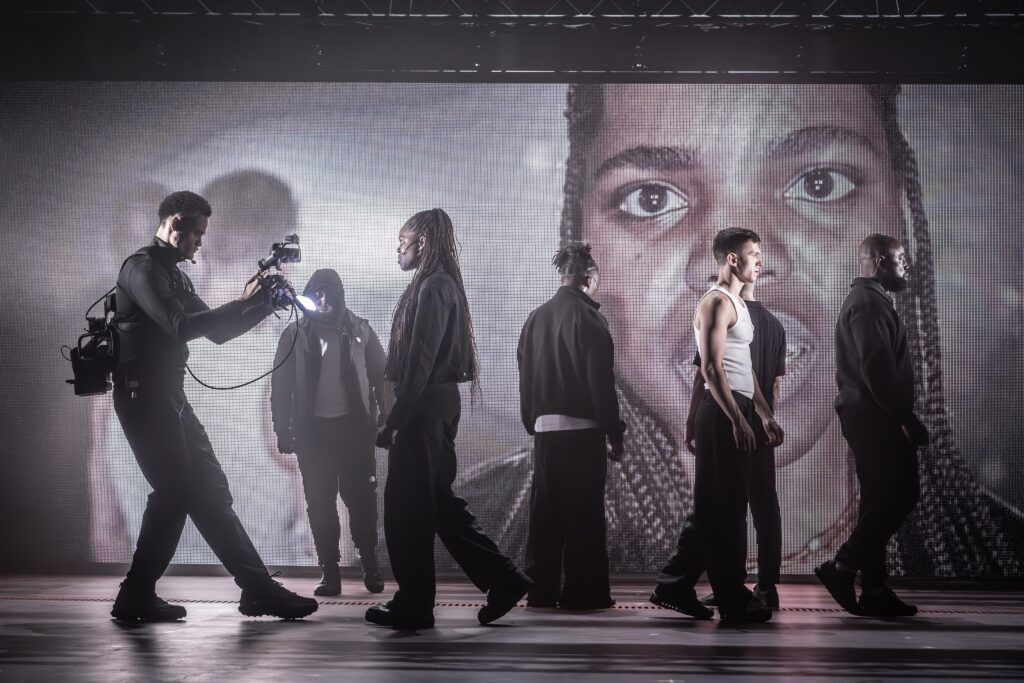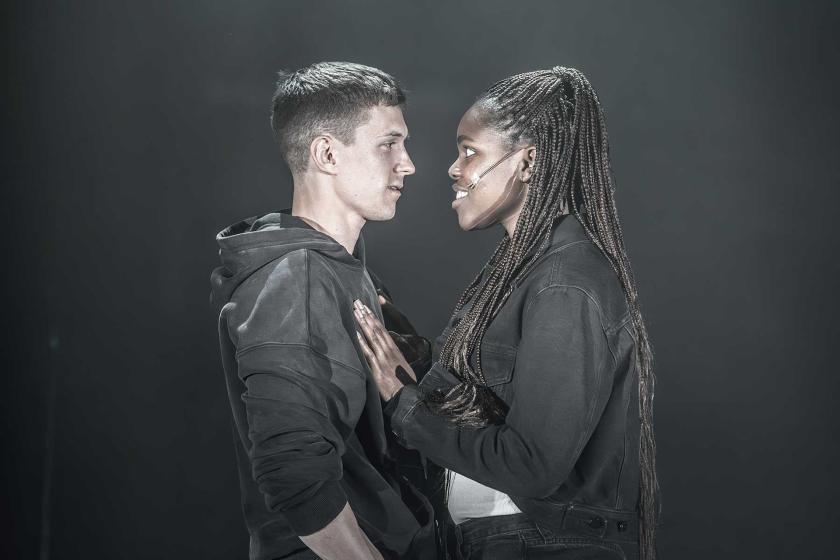One of Shakespeare's longest plays gets gets served up fast and filleted courtesy the director of the moment Jamie Lloyd, who is second to none when it comes to revealing the hidden performance strengths of various (and very varied) stars.
Last year, his shivery Doll's House on Broadway brought Jessica Chastain a deserved Tony nod (she should have won), and his furiously dystopian Sunset Boulevard, starring an entirely revelatory Nicole Scherzinger, rightly swept the Olivier Awards last month, and will hit New York in the autumn. If Lloyd's alchemy doesn't work quite the same magic on the big screen's Spiderman, Tom Holland, here marking his post-pubescent stage debut, that may have something to do with an inbuilt issue with this time-tested (and how!) tragedy itself. This oft-produced play, due on Broadway in a separate autumn production starring another reigning heartthrob Kit Connor (Heartstopper), tends to grant its thespian spoils to Juliet - and, amongst the men, to the short-lived Mercutio, who dies before he can abscond with the evening.
Appearing notably younger than his commanding Juliet, Francesca Amewudah-Rivers, who made headlines of her own as the victim of some disgracefully racist trolling online, a teary-eyed, indrawn Holland looks good in a vest, and his commitment to the venture isn't for a moment in doubt.
 But I imagine one's response to the production as a whole may depend on prior familiarity with a directorial style that is here recognisable at every turn. What worked wonders with his Cyrano and The Seagull, that latter title one of the best Chekhovs I've seen, here risks ossifying into shtick, though it should be said that newbies to Lloyd's singular aesthetic may very likely be enthralled.
But I imagine one's response to the production as a whole may depend on prior familiarity with a directorial style that is here recognisable at every turn. What worked wonders with his Cyrano and The Seagull, that latter title one of the best Chekhovs I've seen, here risks ossifying into shtick, though it should be said that newbies to Lloyd's singular aesthetic may very likely be enthralled.
A projection at the start locates proceedings in 1597, only for the visuals of Soutra Gilmour's design, working alongside a ferociously committed team of creatives, to suggest the here and now. As often as not, the cast lines up Cyrano-style to deliver the verse directly to the house, face-to-face encounters reserved for the most primally intimate of encounters. Violence tends to be accompanied by blackouts followed immediately by the sight of blood, and there's a hipster vibe to Nima Taleghani's take on the text, which makes a horny onlooker out of Freema Agyeman's up-for-anything nurse and allows the Queen Mab speech to slip out of the mouth of Joshua-Alexander Williams's Mercutio as if he were surprised by his own way with language. (The play marks Williams's professional debut.)
Taleghani co-starred in Cyrano and here plays a street-wise Benvolio in a play whose energies lie closer to the director Ivo van Hove's recent Broadway reimagining of West Side Story than the rhetorical exercise you might expect from this play. Indeed, only in London could you find this production running minutes away from a competing Shakespeare, the director Rob Icke's Player Kings, whose 85-year-old leading man, Ian McKellen, was himself an era-defining Romeo more than half a century ago.
One can't quite imagine McKellen, however game, giving himself over to Lloyd's projection-heavy style, which increasingly makes one feel that his shows are bursting the walls of their chosen addresses. For the third production in a row, this director sends a leading player beyond the theatre's walls only then to be made available to us on film: and so we have Holland finding himself in Mantua, or, in this instance, atop the roof of the Duke of York's, a twilit sky visible behind him. The theatre foyer serves as the backdrop for a rather thinly populated ball, but perhaps that's as it must be in a production that offers only one Capulet and Montague parent each: two is de trop.
The sound design by Ben and Max Ringham transmits en eerie hum that one friend compared to the sound of an MRI machine. The projections of Nathan Amzi and Joe Ransom allow the screen-savvy Holland to feel as if he never left his natural habitat, whilst the reliance on whispery speech amplified to the hilt keeps this stage newbie (he was in Billy Elliot as a kid) from having to over-exercise his nascent classical theatre chops.
Holland transmits a doomy sense of occasion that foregrounds a young lover courting death rather more avidly than he does the teenage Juliet, and Amewudah-Rivers has a corresponding self-seriousness that you don't often get from a role that can find more playful colours to it than are allowed here. (The Kenneth MacMillan ballet version captures that aspect of Juliet exactly.) "If all else fails, I still have the power to die," says Juliet, a self-empowering remark that here lands with renewed force: mortality, at least, lies within her control, even if not much else does.
What, then, is the net effect? I've seen more passionate Romeo and Juliets, and more moving ones, too, but Lloyd's production finds every sepulchral crevice to a play whose shadowy foreboding induces shivers of its own.















Add comment